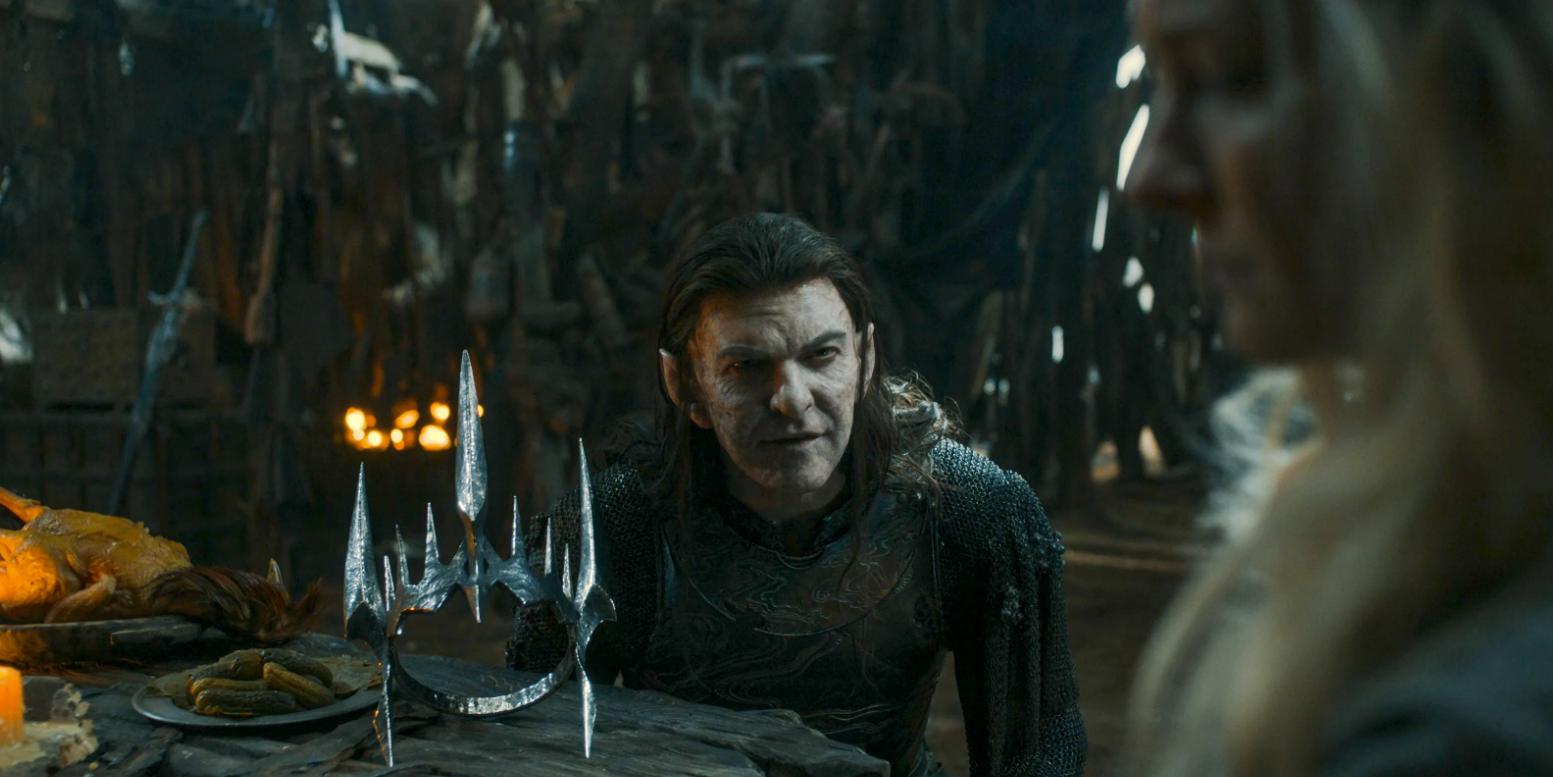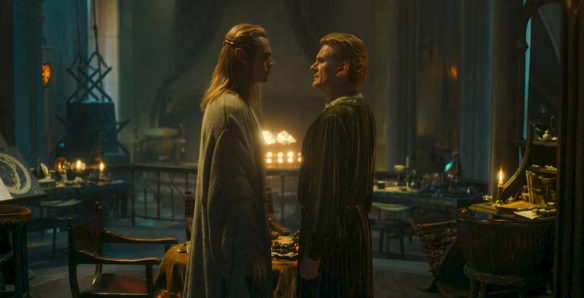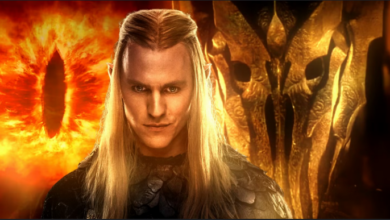This Isn’t The Sauron Story I Expected The Rings Of Power Season 2 To Tell
The Lord of the Rings: The Rings of Power is telling a surprising and original Sauron story in season 2. When showrunners suggested that their show would be “an origin story for Sauron,” I confess that not even 25 years of Tolkien puritanism could inhibit my excitement (via THR). I had concerns that Sauron’s significance and symbolism might be mishandled, which would have been a shame, as Tolkien had an important anti-tyranny message to circulate through his iconic character. But the prospect was irresistible, and I’m still hooked, despite (or perhaps due to) season 2’s mad twists.
Season 1 debuted the mystery box of Sauron’s true identity, while The Rings of Power’s season 1 ending opened the box for good, declaring Halbrand as Sauron. Now that Sauron is out in the open, season 2 is leaning fully into its origin story, showing the villain with unprecedented detail and intimacy, portraying private thoughts and feelings that were normally the reserve of Tolkien’s heroes in the books. All this original material hasn’t put me off yet, and I’m glad to see that closeups of the villain only make him more abhorrent. But season 2 is serving some divisive developments that are giving me pause for thought.
The Rings Of Power Season 2’s Sauron Story Makes The Orcs Less Villainous

The Rings of Power season 2 is making Orcs more sympathetic and less villainous through their opposition to the homicidal Sauron. I can’t help but note a male Orc resisting war, pushing his leader, Adar, for peace. This is underlined by how he goes to cradle his family – a female Orc and a baby Orc. The Orcs are resisting war, but not as much as they are resisting Sauron, which may be even more laudable. Orcs were disposable to Sauron throughout his cruel experiments, and now Adar is leading them to fight the Elves of Eregion to get to Sauron.
The Orcs are resisting war, but not as much as they are resisting Sauron, which may be even more laudable.
Unfortunately for Adar and his Orcs, Galadriel is right when she says that this is just as Sauron wants. Adar is playing into Sauron’s hands, however noble his intentions. For the most part, I think this is a victory of storytelling, sensitively refining a debate that Tolkien wrestled with his whole life – the origins of Orcs and the nature of evil. However, it doesn’t necessarily build Adar’s forces as a center of malice that the show’s heroes must oppose, which could neuter the story somewhat, perhaps more for some than others.
Sauron Looks Weaker For Not Going After Adar In The Rings Of Power

Sauron hasn’t yet openly fought Adar or his army in Rings of Power season 2, despite Sauron’s Jack Lowden form being brutally betrayed and violently murdered by them about 1000 years before the events of season 1. Instead, season 2’s first episode showed Sauron, in his Halbrand disguise, handing himself in to Adar and swapping his freedom for a promise of information on Sauron’s new form – a bold strategy. Brazenness aside, this could make him appear weak, and I’m looking forward to seeing Sauron getting his revenge on Adar, no matter what bizarre form of respect I’ve developed for the orc progenitor.
While a prisoner, the disguised Sauron told Adar that Sauron was really in Eregion, where he was trusted, and proceeded to be released on a mission to get information. With Sauron freed by Adar and subsequently safely ensconced in Eregion, he ditched his Halbrand guise for his Elvish form of Annatar and sat back to wait for Adar’s inevitable impatience and attack on Eregion. I might have found Sauron confronting Adar directly scarier. Without the element of surprise, Adar would have lost to Sauron in a fight, and Sauron could have subjugated many Orcs by force.
Why The Rings Of Power’s Sauron Story Still Works (Despite Its Flaws)

Although I do think that a confrontation between Adar and Sauron is brewing and also necessary to complete Adar’s arc, which I’m sure will end in tears, I also see how Sauron’s manipulation makes more sense than direct confrontation, in many ways. Sauron is the Great Deceiver, and this is the archetype that the show is leaning into. While the Sauron of the Peter Jackson movies was a Big Brother figure oppressing Middle-earth and seeing all, the Sauron of The Rings of Power draws on religious imagery to paint Sauron as a Satanic influence and the Father of Lies.
I see the sense in this, in the context of Tolkien’s world, which pulled heavily on Christianity – Tolkien being a devout Catholic. Despite Tolkien famously rejecting his work as an allegory, he confirmed that it had allegorical elements, just like most stories. Morgoth and Sauron reflected elements of the Devil, while the 15 Valar recalled archangels and the One God Eru Ilúvatar had much in common with Tolkien’s God. Norse mythology also echoed throughout the story, but Sauron’s demonic deception was always key to the story, which Rings of Power recognizes.
Adar’s forces can destabilize Sauron’s Elvish enemies in Eregion and weaken themselves, making themselves ripe for his eventual takeover in The Lord of the Rings: The Rings of Power .
I can see Sauron fighting Adar with brains, rather than brawn, from a logistical standpoint too. In the show’s logic, Sauron can shapeshift at will, apparently, going from Halbrand to Annatar in the blink of an eye. So, Sauron could’ve taken some monstrous form to scare the Orcs into obedience. However, it expends less energy and collateral damage for him to trick them into fighting his war. That way, Adar’s forces can destabilize Sauron’s Elvish enemies in Eregion and weaken themselves, making themselves ripe for his eventual takeover in The Lord of the Rings: The Rings of Power.




